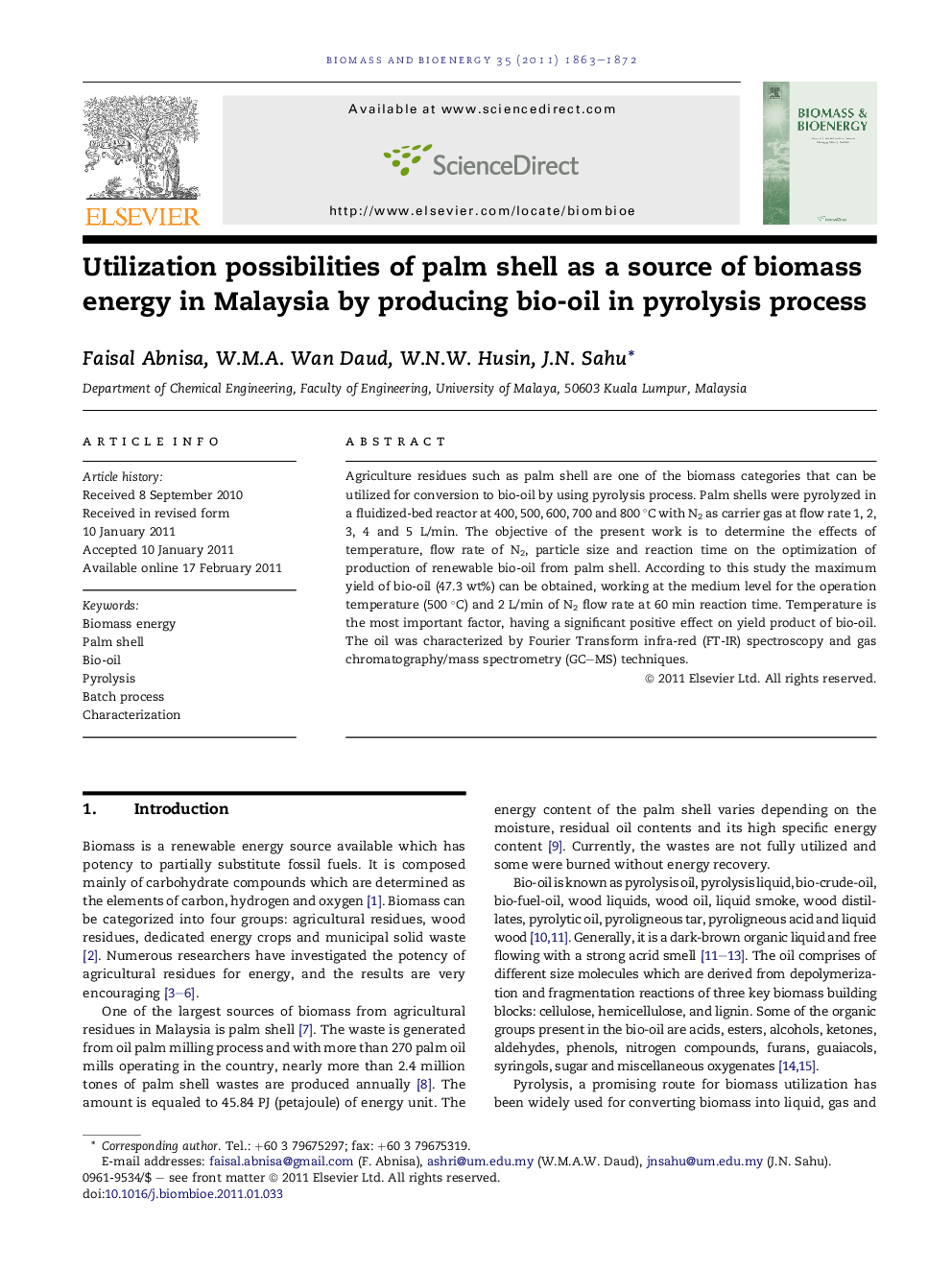| Article ID | Journal | Published Year | Pages | File Type |
|---|---|---|---|---|
| 677732 | Biomass and Bioenergy | 2011 | 10 Pages |
Agriculture residues such as palm shell are one of the biomass categories that can be utilized for conversion to bio-oil by using pyrolysis process. Palm shells were pyrolyzed in a fluidized-bed reactor at 400, 500, 600, 700 and 800 °C with N2 as carrier gas at flow rate 1, 2, 3, 4 and 5 L/min. The objective of the present work is to determine the effects of temperature, flow rate of N2, particle size and reaction time on the optimization of production of renewable bio-oil from palm shell. According to this study the maximum yield of bio-oil (47.3 wt%) can be obtained, working at the medium level for the operation temperature (500 °C) and 2 L/min of N2 flow rate at 60 min reaction time. Temperature is the most important factor, having a significant positive effect on yield product of bio-oil. The oil was characterized by Fourier Transform infra-red (FT-IR) spectroscopy and gas chromatography/mass spectrometry (GC–MS) techniques.
► This study reports the results of experimental investing of conversion palm shell into bio-oil by using pyrolysis and to find the optimum condition to produce the highest yield of bio-oil. ► Several parameters which have effect to the process such as temperature, N2 flow rate, reaction time and particle size is will be investigated in this study. ► The outcome of this result will be important for abatement and control of increasingly waste palm shell storage problems any energy source to the world.
